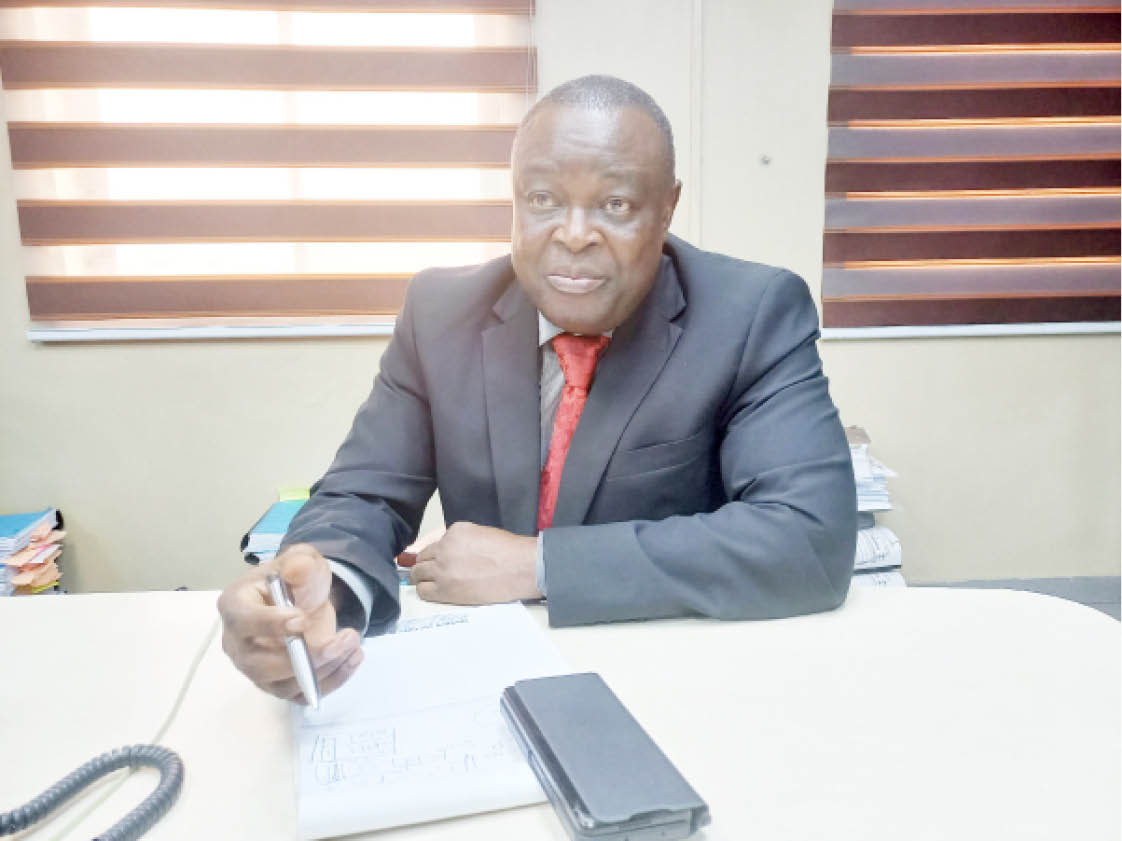Rotimi Jacobs (SAN) is a prosecuting counsel for the Economic and Financial Crimes Commission (EFCC). He successfully secured the conviction of four ex-governors: late Diepreye Alamieseigha (Bayelsa), Joshua Dariye (Plateau), Jolly Nyame (Taraba) and Orji Uzor Kalu (Abia). But Kalu’s conviction was later upturned by the Supreme Court. In this interview, he speaks on the presidential pardon granted Dariye and other sundry issues.
Some lawyers say Mr Dariye’s pardon is unconstitutional, do you agree?
When you look at Section 175 of the constitution you cannot say Dariye’s pardon is unconstitutional. The proponents of that argument are saying that Section 15 says that the state must stop corruption, and then if the state should go through the rigours of investigation and prosecution of a person, and then the same state now releases the person, some are saying that you are breaching Section 15. They say that you are indirectly encouraging corruption.
Generally, if you look at Section 175 on the face value, they are trying to comply with that section. The question is that you have to understand the basis of the case you have granted pardon for. This case was reported by the United Kingdom (UK). Dariye was arrested while he was in the UK. Thinking that London is like Nigeria, the man got into a hotel and started distributing dollars to everyone and his girlfriend. The London police were alarmed and searched his room and discovered money in excess of what he should hold. They now granted him bail pending investigation and asked him not to leave the UK. This man jumped bail and came down to Nigeria. So the UK authorities now sent documents to Nigeria when they discovered that he bought a very expensive duplex in UK and jumped bail. The then president, Olusegun Obasanjo, sent the M-alert to the attorney general and the EFCC to investigate. The Dariye investigation was never initiated by the Nigerian government; it was initiated by a foreign government, the UK. That was the genesis of the case.
It was investigated and we found out that the federal government had ecological fund to help states and people who have problems of erosion and other disasters that affect the environment. The Plateau State Government applied for the fund due to the mining activities going on in the state and was given N2.1bn. Dariye did not allow the officials of the state to go and process it; he was the one doing it as governor. He was the one who collected the cheque from the office of the then vice president, Atiku Abubakar. Instead of taking the cheque to Plateau State, he opened a bank account in the name of Ebenezer Reltnorm. Reltnorm was not a company registered by the Corporate Affairs Commission (CAC). He got a banker to open the account in this name and deposited the proceeds of the cheque in that account. He is the only signatory to the account. We investigated it and got all these things. What he did was sending about N500m to the state government and then utilised the remaining for himself. He bought properties in Abuja and London. He sent some to some of his aides, then he sent N100m to his party, the Peoples Democratic Party (PDP). This was how he spent the money.
So, he was arrested and asked to explain. He said he took the money. There were also other monies transferred into this Ebenezer Reltnorm account directly from the state government. Some contractors also paid money into this account. So, we investigated him, prosecuted him and he was convicted and given 10 years.
Part of the properties that he bought with the money in the name of Ebenezer Reltnorm was leased out to one embassy in Abuja. So, when we got the judgment, we said the property should be forfeited to the federal government. We are still on litigation on this property.
So, the basis of a pardon is for someone who knows that he has committed an offence and is remorseful. A man who used state funds to buy properties and he has not repaid that money, and the properties have not been released, has now been granted pardon.
So, how do we go back to court to get these properties when you have absolved him of the crime?
That is why it is totally different from the others. The UK government sold the property in London and they sent the money to Nigeria and the federal government sent the money to Plateau State. All the money recovered from the UK has been sent to Nigeria and the state has received it. Now the one we have in Nigeria, we cannot get it. You now grant pardon without asking the prosecuting agencies whether there are any pending issues. So, when I go to court now, the basis for any objection has gone because we have to tell the court the basis for objection. When you grant pardon, you obliterate the records as if he has never committed any offence.
That is the problem. He can now contest election, he can now go back to the senate. To tell you that we are not fighting corruption, this man was convicted in 2018 after becoming a senator. He collected all his allowances in the senate even while in prison; while he remained a convict. The federal government did not look at the implication of these. All the state governors who have been convicted, even while in prison, they turned the prison into a Mecca. Their political supporters, anybody who wants to get something must go and pay homage to their lords in prison. So they are desecrating the prison; how do you see that type of person? He is not remorseful before you grant him pardon.
What is the effect of the pardon?
Many of the judges are demoralised, and that is why you see that our judges will often uphold objections from defence counsels and set the accused persons free. Because if I send this man to prison, the federal government may release him. The abuse of the use of pardon is great under the present administration. During the COVID-19 lockdown, it was recommended to the president to free 2,500 people on account of the COVID-19 spread. That power was used against the people. In 2011 when there was a strike and demonstration against subsidy, EFCC convicted a number of people. I also secured about 10 convictions from that 2020 till now; all the convicts on oil subsidy were released on amnesty during the COVID-19. The people convicted for the 2011 oil subsidy fraud are now walking freely in our society. So, how do we want our society to be better when there are no consequences for fraud?
See the case of Orji Uzor Kalu. I know that Justice Idris, the trial judge, was elevated. Orji Uzor Kalu and one of his commissioners and a company applied to the president of the Court of Appeal to allow Justice Idris to come back, and Justice Idris came back at their instance and delivered judgment. The same people that called him back are the same people that went to the Supreme Court to say that coming back was wrong. All the exercise, trial since 2007, were rendered futile. We now said we are not tired but only for them to transfer the case from Lagos to Abuja without any application from anybody. The court said that we could not retry him. So all these things are demoralising. If we don’t want to fight corruption, let us make it clear. Let everybody continue to do what he likes.
Late Alamieseigha was the first ex-governor that I prosecuted and he was convicted. To convict a governor is not an easy thing, even to investigate them is not easy, and to go to court is not an easy thing. Not all judges have the courage to try an ex-governror. Many governors were charged to court but what were the outcomes? Here in Nigeria we respect persons. You may get a good case but you need people to testify. Most of the people you are calling as witnesses are people who have worked under these governors before and are loyal to them. So it is extremely difficult, and I know what I went through in securing convictions of these three governors: Alamieseigha, Dariye and Nyame. Kalu would have been the first. He was already convicted. Nobody is talking about the N7bn belonging to Abia State now.
In view of this, do you agree that EFCC should be scrapped?
That will not solve the problem. It will even add to the problem. EFCC is still trying its best in the circumstance. It is not only these cases that EFCC is doing. See the dimension 419 cases have turned to today. Our teeming youths have turned into Yahoo all because of unemployment. It is scary.
Is there anything like categories of pardon?
Yes, there are categories of pardon. You can grant conditional pardon in which it will not affect the properties or the fine that you are to pay. Clemency and prerogative of mercy, but unconditional pardon will rubbish all that the prosecution is doing.
Where then do think are the major areas where we have problems?
Corruption is at a level. I was thinking that when the president was elected the situation would be reduced. The system he met is still going down. His tenure will expire next year and it will still be like that. He will leave it the same way he met it. I was expecting that when Buhari was coming the system and value chain would change and that the attitude would change and the national interest would be uppermost in everybody’s mind. These are the things I was advocating before he came.

 Join Daily Trust WhatsApp Community For Quick Access To News and Happenings Around You.
Join Daily Trust WhatsApp Community For Quick Access To News and Happenings Around You.


